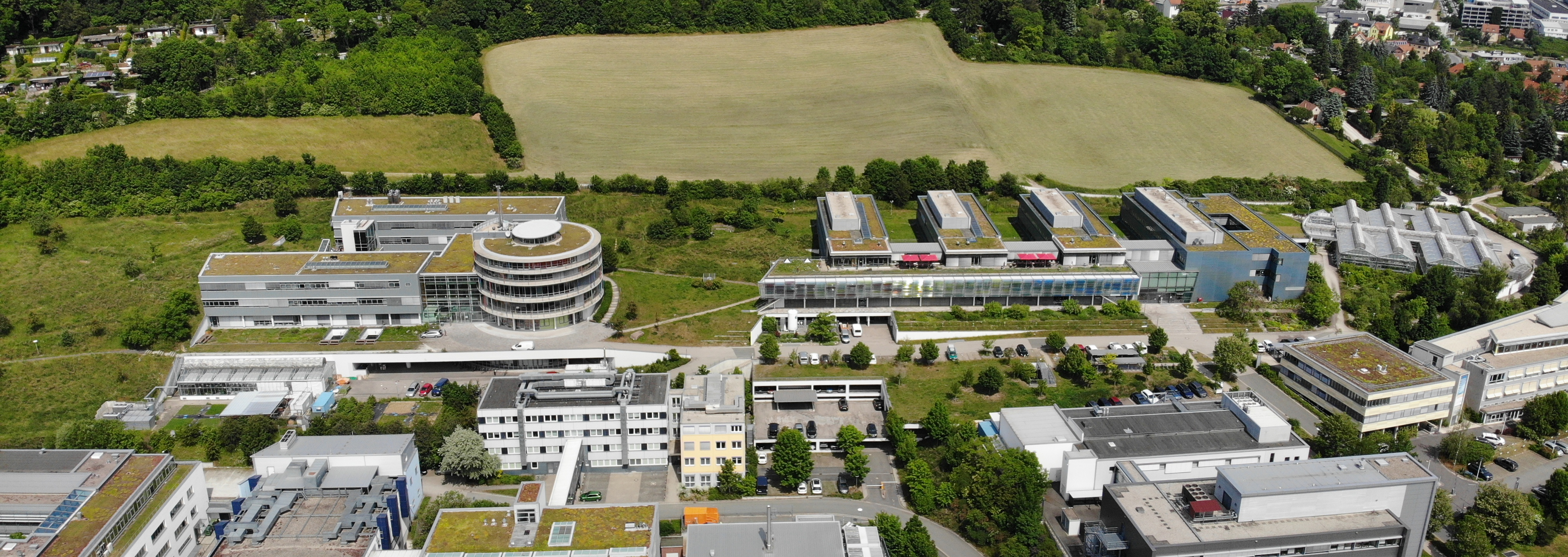
The importance of biosphere-atmosphere interactions in a changing climate
3rd June 2022 | 12:10 pm – 12.30 pm
Hans-Knöll-Straße 10, 07745 Jena, Germany
BGC Lecture Hall
Zoom: will be provided
Session 3 – From leaf to globe: understanding biosphere-atmosphere interactions with observations (Markus Reichstein, moderator)
3rd June 2022 | 10.00 am – 12.30 pm
Abstract
Human-caused climate change is affecting the terrestrial biosphere not only by changes in mean climate but also by changing climate variability. While, for instance, the steady increase in temperature results in longer growing seasons and vegetation shifts, long-lasting droughts and heat waves lead to abrupt vegetation mortality. At the same time, increasing atmospheric CO2 concentration directly affects growth and water-use efficiency of plants. In combination, these impacts profoundly alter the functioning of the terrestrial biosphere and consequently feeds back to the atmosphere. Such biosphere-atmosphere feedbacks can be stabilizing, for instance if a forest causes local cooling by evapotranspiration. On the other hand, such feedbacks may in the worst-case lead to a runaway process that may pass a critical threshold and tip into a qualitatively different state. This may happen if, for example, large-scale forest mortality leads to profound changes in local climate thereby preventing the regeneration of forest.
Besides the above-mentioned changes, humans have directly modified approximately 85% of the Earth’s land surface in the past 300 years. Thus, most of the biosphere, and its ecosystem structure and functioning, are altered by human activity. Consequently, humans have become a substantial component of biogeochemical cycles, ecosystem processes and biosphere-atmosphere feedbacks.
In my talk, I will exemplarily show the responses of terrestrial ecosystems to environmental change, and how biosphere-atmosphere feedbacks are affected. I will discuss the role of management for climate change adaptation and mitigation. Moreover, I will highlight the importance of considering biosphere-atmosphere interactions for a sustainable management of ecosystems in the climate crisis.
Biography
Prof. Dr. Anja Rammig is Full Professor for Land Surface-Atmosphere Interactions at Technical University of Munich (TUM) since 2021. In 2015, she was appointed as Tenure-Track Assistant Professor at TUM. Before she joined TUM, she worked as a researcher at the Potsdam Institute for Climate Impact Research in the Department Earth System Analysis from 2008-2015. After completing her PhD in 2006 at ETH Zurich, she was appointed as postdoctoral fellow at Lund University, Sweden. She is a biologist by training with Diploma from University of Erlangen-Nuremberg.
Her main expertise is in investigating environmental change impacts on vegetation, with a main focus on forests. Her research spans plant physiology, biogeochemistry and ecosystem dynamics in different forest ecosystem ranging from global to regional scale. Also, the interactions and feedbacks in social-ecological systems are of high relevance in her work. Applied methods are in the field of ecosystem modelling and in environmental data analysis. One of the main interest is to better understand the responses of the Amazon rainforest in a changing climate. In her group, the Lund-Potsdam-Jena Dynamic Global Vegetation Model (LPJ-GUESS) is actively developed. Another important focus of her research is on quantifying the impact of extreme events on the terrestrial biosphere. In this field, she is strongly building on the analysis of remote sensing data and implementing process-based drought responses in the ecosystem model LPJ-GUESS. Her research on this topic was kicked-off with the MPI-BGC-coordinated EU-FP7 project “Carbo-Extreme: Quantifying impacts of climate extremes on the carbon cycle” in which she was appointed as postdoctoral researcher at PIK and worked in close collaboration with colleagues from MPI-BGC Jena.
